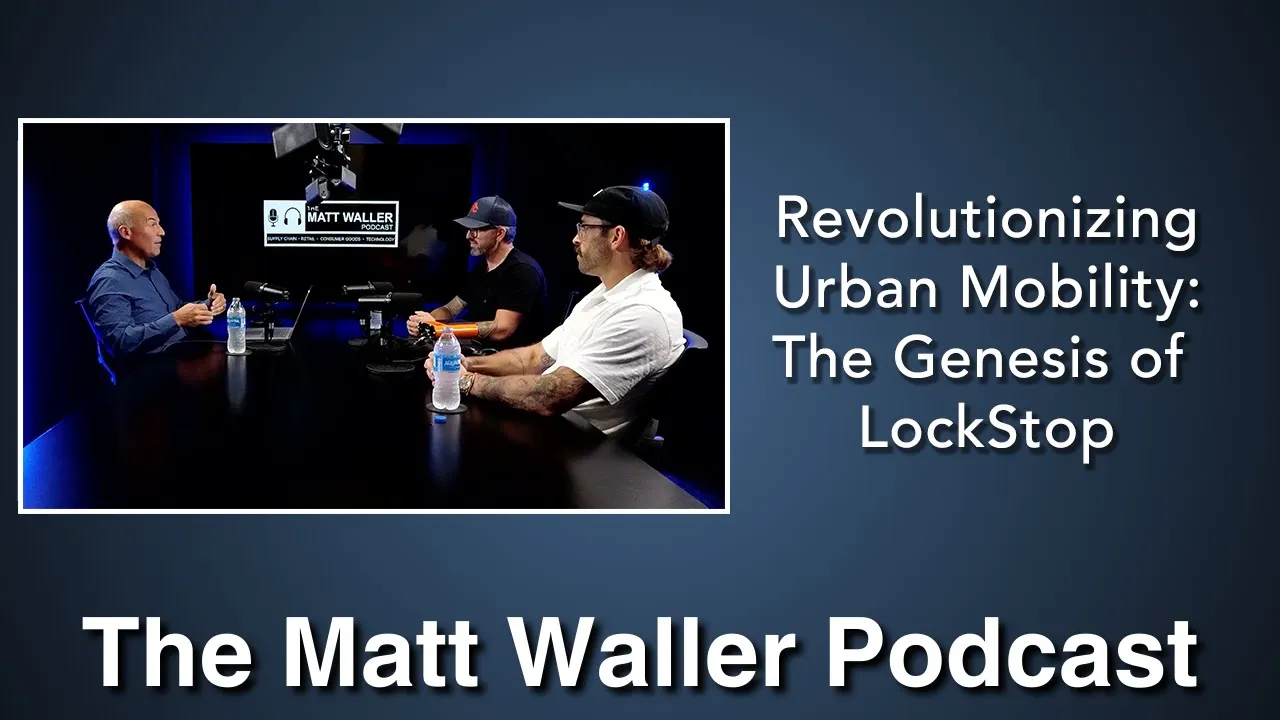Today, I'd like to share the inspiring story of LockStop, a startup founded by Clayton Woodruff and Mike Burton, who are both alumni of the executive MBA program at the Walton College. Their venture stands as a testament to the power of innovative thinking in solving everyday problems — in this case, enhancing urban mobility by simplifying bike security.
The Problem and the Innovative Solution
Imagine riding your bike to a location without worrying about the security of your bicycle or the hassle of carrying a heavy lock. This vision is what drove Clayton and Mike to create LockStop, a company that integrates locking mechanisms directly into existing urban infrastructure, such as bike racks. This system not only eliminates the need for cyclists to carry locks but also provides enhanced security features through a connected app that alerts users to any tampering.
Their prototype, which is simple yet robust, retrofits to existing bike racks and operates via a QR code scanned by the user’s smartphone. This integration of digital technology into physical security represents a leap forward in making cycling a more appealing option for urban transportation.
Entrepreneurial Journey and Development
The inception of LockStop was during their MBA program, where the duo took a class called New Venture Development. This educational environment provided the fertile ground for their idea to germinate. Mike's personal experience of having his bike stolen as a child, combined with a moment of realization at a farmer’s market where he had forgotten his bike lock, seeded the initial concept.
Their journey from idea to prototype involved multiple iterations — from a rudimentary model built from an electric box to sophisticated designs aided by 3D printing and collaboration with a prototype lab. This iterative development process was crucial, as each stage incorporated feedback from various stakeholders, including potential users and city officials.
Community and Environmental Impact
LockStop isn’t just about preventing bike theft; it’s also about promoting a healthier, more environmentally friendly urban lifestyle. By reducing the barriers to cycling, such as theft and the inconvenience of locks, Clayton and Mike envision a future where more urban trips are made by bike, thus reducing carbon emissions and traffic congestion while promoting physical health.
Their system could serve as a model for cities looking to increase cycling rates among residents, as it promises to make biking a more secure and convenient mode of transportation. The potential for collecting data on cycling routes and habits could also aid urban planners in creating more bike-friendly infrastructures.
Challenges and Future Directions
Despite the clear benefits, introducing a new system like LockStop comes with challenges, particularly around adoption and integration into existing urban infrastructures. Convincing municipalities and other stakeholders to adopt this new system involves demonstrating not only its effectiveness but also its ease of installation and maintenance.
Looking ahead, the potential for scaling up LockStop is vast. The technology could be integrated into smart city projects and could attract interest from larger security or outdoor equipment companies looking for innovative urban solutions.
Conclusion
LockStop exemplifies how a simple yet powerful idea can evolve into a potential market disruptor, influencing urban mobility patterns and contributing to the creation of healthier cities. It also highlights the importance of practical education and entrepreneurial spirit in bringing such ideas to fruition.
For anyone passionate about innovation, urban planning, or cycling, LockStop's journey from a class project to a promising startup underscores the limitless possibilities that can emerge from addressing everyday challenges with innovative solutions.
Revolutionizing Urban Mobility: The Genesis of LockStop



Member discussion: